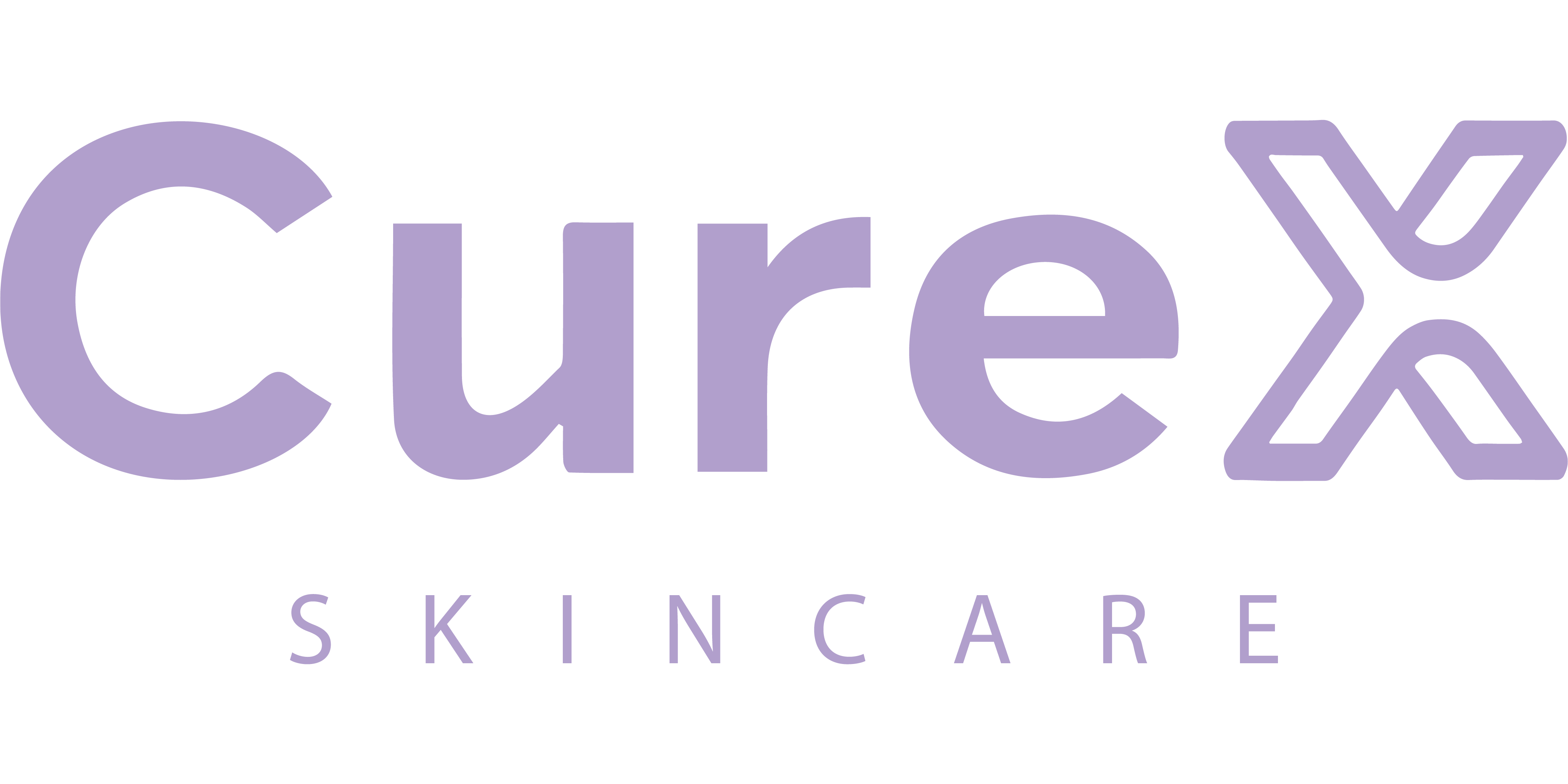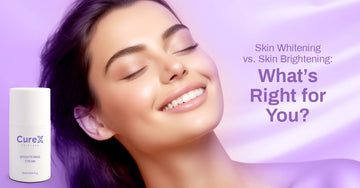In Pakistan, where fair skin has long been glorified, skincare choices are often shaped by the desire to look "white" or "glowing." But here’s the thing: skin whitening and skin brightening are NOT the same and knowing the difference can help you protect your skin and your confidence.
What Is Skin Whitening?
Skin whitening involves products or treatments that lighten your natural skin tone by reducing melanin, the pigment responsible for your skin color.
While whitening creams may give fast results, many contain harmful ingredients like:
-
Hydroquinone
-
Mercury (still found in unregulated products)
-
Topical steroids
These can lead to:
-
Skin thinning
-
Redness and sensitivity
-
Hormonal imbalance
-
Long-term skin damage
Whitening may change how you look temporarily, but at the cost of your skin’s long-term health.
What Is Skin Brightening?
Skin brightening focuses on restoring your skin’s natural radiance without changing its actual color.
These products:
-
Reduce dullness
-
Fade acne marks, sunspots, and discoloration
-
Improve texture and tone
-
Support healthy cell turnover
Common brightening ingredients include:
-
Vitamin C – boosts glow and collagen
-
Niacinamide – targets pigmentation and oil control
-
Alpha Arbutin – gently fades dark patches
-
Licorice extract – evens out tone naturally
-
Kojic acid (in safe concentrations) – reduces discoloration
Brightening is about helping your skin shine in its own shade.
Why This Difference Matters in Pakistan
For decades, fairness has been tied to beauty in South Asian culture — especially through media and advertising. But times are changing.
Today, Pakistani consumers want:
-
Healthier-looking skin over just lighter skin
-
Clean skincare that doesn’t harm
-
Confidence in their natural tone
You’ll notice this shift in brands like CurexPK, which focus on serums, moisturizers, and face creams that promote brightness, hydration, and healthy skin — not bleaching.
Top Brightening Ingredients That Actually Work
Want that radiant look? Try products with:
-
Vitamin C Serum – for a natural glow
-
Niacinamide Cream – reduces dark spots, balances oil
-
Alpha Arbutin Cream – treats uneven skin tone
-
SPF Moisturizer – bright skin needs sun protection every day
These ingredients are safe, gentle, and dermatologist-approved.
Don’t Fall for Whitening Myths
❌ "Fair skin is more beautiful"
→ Beauty comes in every shade. Glow > fairness.
❌ "Whitening creams are more effective"
→ Quick fixes often cause long-term skin issues.
❌ "Brightening is just a fancy name for whitening"
→ Not true. Brightening boosts radiance, not fairness.
How to Choose the Right Products?
When shopping in Pakistan:
- Read the ingredients list
- Choose safe brands with reviews
- Avoid creams with unmarked labels or “overnight results”
- Match products to your skin type, not just the trend
Looking for a place to start? CurexPK stocks trusted face creams, moisturizers, and serums designed for Pakistani skin and climate.
Final Thoughts
You deserve skincare that enhances your real beauty, not one that risks your health. Skin brightening is about feeling confident, radiant, and naturally you. Skin whitening, in contrast, is a risky shortcut with little reward.
Pro Tip: Glowing skin is the new fair.
Certainly! Here are five frequently asked questions (FAQs) that people commonly search for regarding skin whitening and skin brightening, particularly relevant to audiences in Pakistan:
FAQ's
1. What is the difference between skin whitening and skin brightening?
Skin whitening involves using products to lighten the skin's natural tone by reducing melanin production, often aiming for a lighter complexion. In contrast, skin brightening focuses on enhancing the skin's natural radiance by addressing dullness, uneven tone, and pigmentation without altering the inherent skin color. Brightening products typically contain ingredients like vitamin C, niacinamide, and alpha arbutin, which promote a healthy glow.
2. Are skin whitening products safe to use?
Many skin whitening products contain potent ingredients such as hydroquinone, mercury, or corticosteroids. While these can be effective in reducing pigmentation, they may pose health risks if used improperly or over extended periods. Potential side effects include skin irritation, thinning, and increased sensitivity. It's advisable to consult a dermatologist before starting any skin whitening regimen and to use products as directed. (Wikipedia, Verywell Health)
3. How long does it take to see results from skin brightening products?
The timeframe for visible results from skin brightening products varies based on the individual's skin type, the specific product used, and the consistency of application. Generally, noticeable improvements in skin radiance and tone can be observed within 4 to 8 weeks of regular use. It's important to maintain a consistent skincare routine and protect the skin from sun exposure to achieve optimal results.(Kosme Aesthetics)
4. Can I use skin brightening products if I have sensitive skin?
Yes, individuals with sensitive skin can use skin brightening products, but it's crucial to choose formulations that are gentle and free from harsh chemicals. Ingredients like vitamin C and niacinamide are generally well-tolerated. Performing a patch test before full application can help ensure the product doesn't cause irritation. Additionally, consulting with a dermatologist can provide personalized recommendations.
5. Do skin brightening products also help with acne scars and dark spots?
Yes, many skin brightening products are formulated to address hyperpigmentation issues, including acne scars and dark spots. Ingredients such as alpha arbutin, kojic acid, and vitamin C are known to reduce the appearance of these imperfections by inhibiting melanin production and promoting even skin tone. Consistent use, along with sun protection, can enhance the effectiveness of these treatments.

